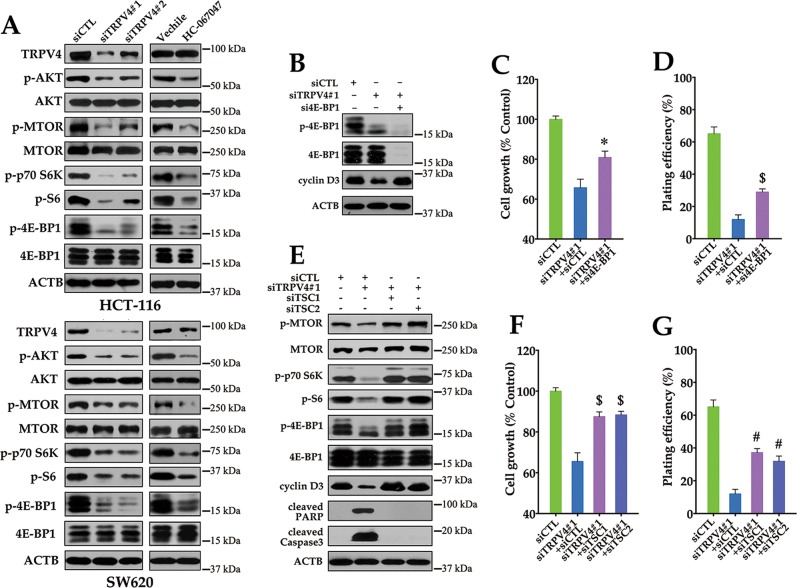Fig. 7. The AKT-mTOR pathway is required for cell growth inhibition induced by TRPV4 silencing.
a TRPV4 knockdown or HC-067047 inhibits AKT-mTOR signaling in colon cancer cells. HCT-116 or SW620 cells were transfected with control siRNA (siCTL), TRPV4 siRNA#1(siTRPV4#1) or TRPV4 siRNA#2 (siTRPV4#2) for 72 h, or treated with vehicle (0.1% DMSO) or HC-067047 (4 μΜ). The protein levels of TRPV4, phospho-AKT (Ser473; p-AKT), AKT, phospho-mTOR (Ser2448; p-mTOR), mTOR, phosphor-p70 S6 Kinase (Thr389; p-p70S6K), phosphor-S6 Ribosomal Protein (Ser235/236; p-S6), phospho-4E-BP1 (Thr37/46; p-4E-BP1); 4E-BP1, and ACTB were analyzed by western bolt. b The effect of 4E-BP1 siRNA (si4E-BP1) on decrease of cyclin D3 expression induced by TRPV4 silencing. HCT-116 cells were transfected with siCTL, siTRPV4#1 plus siCTL, or siTRPV4#1 plus si4B-BP1 for 72 h. c The effect of 4E-BP1 siRNA on the decrease of cell viability induced by TRPV4 silencing. Cell viability was analyzed by MTT assay. d The effect of 4E-BP1 siRNA on the decrease of colony formation induced by TRPV4 silencing. e The effects of TSC1 siRNA (siTSC1) and TSC2 siRNA (siTSC2) on the inhibition of mTOR signaling, the decrease of cyclin D3 expression or the increase of apoptosis marker cleaved PARP and Caspase3 expression induced by TRPV4 silencing. HCT-116 cells were transfected with siCTL, siTRPV4#1 plus siCTL, siTRPV4#1 plus siTSC1 or siTRPV4#1 plus siTSC2 for 72 h. f The effects of TSC1 siRNA and TSC2 siRNA on the decrease of cell viability induced by TRPV4 silencing. g The effects of TSC1 siRNA and TSC2 siRNA on the decrease of colony formation induced by TRPV4 silencing. All quantitative data shown represent the means ± SEM of at least three independent experiments. *P < 0.05, $P < 0.01 and #P < 0.001, versus the siTRPV4#1 plus siCTL group

